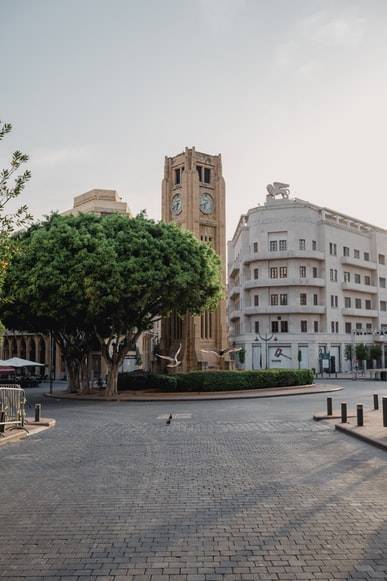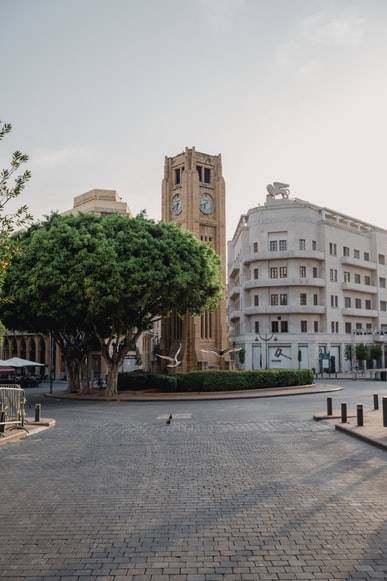The electronic newspaper "Anbaa" reported: As the country faces dwindling prospects for recovery or at least halting the collapse, a political faction represented directly by the Free Patriotic Movement, along with those who share similar interests, continues its overt attempts to push through its agenda even at the expense of the entire nation. The latest of these nefarious attempts is the effort to postpone the elections, despite knowing the substantial losses it would incur. The head of the Progressive Socialist Party, Walid Jumblatt, made a clear stance yesterday against this faction, which has violated all norms, pointing out that "it seems that the Bisri dam has returned and that Salhata remains, that reforming the electricity sector is prohibited, that the offer from Jordan has vanished, that judicial independence has dissipated, that the port investigation is stalled, that the IMF plan is in disarray, and that demarcation is capricious. Above all, they want to steal the government commissioner's authority to conclude their deals freely."
Yesterday, the attempts of the Free Patriotic Movement to postpone the elections appeared starkly uncovered, as a minister associated with this faction proposed delaying the elections, indicating a clear intent to sidestep the electoral obligation by moving it up to the end of summer. The deliberations of the first meeting of the ministerial committee assigned to study the "Mega Center," held yesterday, revealed, according to committee sources to "Anbaa," that the impasse reached by the attendees is "exclusively legal and concerns how to establish the Mega Center, as the Interior Minister's decision alone is insufficient for its establishment, as it requires approval from the Parliament and possibly also legal legislation that may not be achievable within the short period before the elections on May 15."
In contrast to efforts to postpone the elections, parliamentary sources expressed disbelief at some political forces' insistence on the "Mega Center," viewing it as a "right intended for a wrongful purpose." The sources revealed to "Anbaa" that the aim of threatening to delay the elections until September under the pretext of the "Mega Center" is twofold: "Either to entirely annul the elections, or to conduct them in September, as well as to make it impossible to form a new government in the period preceding the presidential elections, leading to a failure to elect a president after the term of President Michel Aoun ends on October 31, 2022, due to the absence of a government. This would leave Lebanon in a presidential vacuum, and perhaps President Aoun would find in this a justification to remain in Baabda, leading the country into a new political crisis."
In this context, Democratic Gathering member MP Bilal Abdullah stated in a conversation with "Anbaa" that "there is currently a technical impossibility for implementing the Mega Center because time does not permit its execution, given the required procedures, determining the centers, qualifying them, ensuring the necessary logistical support and data, and re-sorting the names emerging from the voter lists between those wishing to vote via the Mega Center and those voting in their villages and towns, because if the same names appear repeatedly, it constitutes fraud."
On another front, with the fuel crisis escalating and the panic experienced by Lebanese citizens since the outbreak of the Ukrainian war due to the severe shortage of essential foodstuffs, and the decision by the Minister of Economy to halt exports of certain products abroad, economic expert Dr. Anis Abu Diab noted in a conversation with "Anbaa" that "Countries usually attempt to shape their foreign policy to avoid crises that may arise, including maintaining their food security in the medium term to face any emerging crisis. However, the Lebanese state unfortunately comes late to address crises. It's as if Lebanon needs new calamities in addition to what has occurred in the past three years," pointing out that "the Russian-Ukrainian war, considering that both Russia and Ukraine are sources of basic and strategic goods, complicates the crisis in Lebanon, especially regarding strategic goods like fuel, wheat, and oils. Additionally, oil prices have risen after the price of a barrel reached $118, and Lebanon needs sugar at 60%, oils at 120%, while wheat reserves have become nearly depleted due to the port explosion, and the fluctuation in oil prices due to the lack of reserves causes price hikes, compounded by the dollar shortage."
Abu Diab viewed the step taken by the Ministry of Economy to halt the export of some agricultural products as "neither progressive nor regressive," considering it "might curb the rising prices of gasoline, diesel, and others that impact all goods." He stated that "the Ministry of Economy and the government were delayed in taking precautionary decisions to import strategic goods from countries other than Ukraine and Russia, as the crisis began to manifest since December 2021, but the lack of institutions and the dollar shortage reflected negatively on Lebanon. Therefore, we are in a predicament, and what the Minister of Economy is trying to convey, that there is no need to panic, is quite the opposite; we should panic to truly ensure consumption rationalization in wheat, flour, and fuel. Because we do not know when the crisis will actually end. There are no signs of a solution, nor does the government and the ministry have the capacity to monitor traders, who have, in one way or another, exacerbated the crisis."




